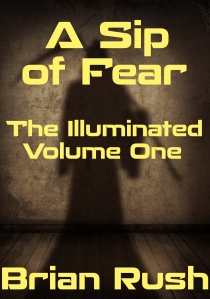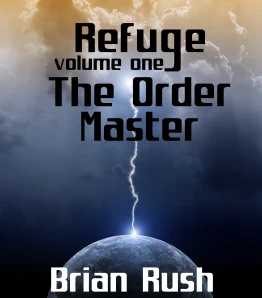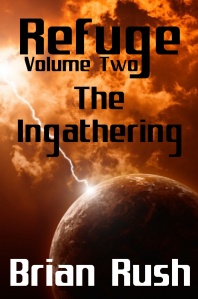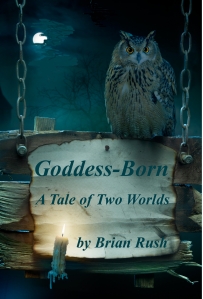Book description:
Monthly Archives: February 2014
Book Review: Stormcaller by R.K. MacPherson
Filed under Book Review
Book Review: A Noble’s Quest by Ryan Toxopeus
 Genre: Alternate-World Fantasy
Genre: Alternate-World Fantasy
Author’s Description:
Thomas and Sarentha flee everything they know when Thomas murders a co-worker. In the dead of night, a cloaked noble approaches and offers them a sum of coins they cannot refuse. His sole request is for the pair to retrieve an amethyst
from a tomb.
From there, they are introduced to Eliza, a spirited and head-strong noblewoman who proves her competence with her skills in diplomacy and combat. Together with Thomas’ strength and steadfastness, and Sarentha’s drive and inquisitiveness, the trio makes an odd but capable group.
Their adventures take them across the lands of the Tamorran Empire to witness sights they never imagined. With grand plans in motion, everything hinges on Thomas, Sarentha, and Eliza’s success. Artifacts need to be crafted, alliances need to be formed, and above all, secrets need to be kept. Not even their own allies know every facet of the noble’s quest, and he plays a dangerous game by creating plots within plots.
Can the disparate trio hold together throughout their trials? What secret does the noble know that causes him to go to such
extraordinary lengths to succeed? Dark shadows blanket the Tamorran Empire, and illuminating those secrets will bring a terrifying truth.
I’m going to give this alternate-world fantasy story four stars mostly for effort and potential. Otherwise, it would rate three. I found the writing and characters so-so, but the plot was original and interesting and involved a mystery I didn’t see through until it was revealed, despite the clues. Almost from the beginning, the reader will notice that the different races are much-too-conveniently organized, with each having its own segregated town, mingling only in the national capital. That comes across at first as poor world-building (especially combined with another thing that I’ll go into in a moment), but it turns out that it’s an important plot element and there’s a very logical (and insidious) reason for it.
Now, the reason it comes across at first as poor world-building rather than the mysterious element that it actually is, is because the world-building in A Noble’s Quest, unlike the plot, is in fact rather unimaginative. The society consists of five sentient races, and the non-human ones are actually called Elves, Dwarves, Gnomes, and Halflings. Worse, the characteristics of each race sound like a combination of Dungeons & Dragons and World of Warcraft. Elves are slim, magical, long-lived, and reside in the woods; Dwarves have Scottish accents, drink heroically, live underground in the mountains, and make things. Gnomes are tinkerers and inventors. Halflings are greedy and often regarded as thieves, or the merchant equivalent. Although not part of the society, there are Orcs and Goblins in the story, too, and they’re just as predictable, right down to the hulking, green-skinned, and betusked appearance of the former.
Setting all that aside, and although the book held my interest, it could have been so much better. The main characters are outlined rather than developed. We learn little about their background, and aside from a few characteristics (Thomas is a mighty warrior who doesn’t like to kill people, Sarentha is a roguish fellow who wants to escape his dreary life) we know little about what motivates them. Seldom do their emotions erupt; rather, they ooze. I can see so many ways in which that could be improved: a sub-plot of unrequited desire between Sarentha or Thomas or both, and their lovely, competent half-Elf companion, Eliza; a situation in which their lives are seriously imperiled and we feel it; strong temptation on Sarentha’s part to betray the quest for gold; More situations in which Thomas must deal with his innate ferocity that conflicts with his desire for peace. None of that happens, or if it does, it’s depicted in watercolor and pencil drawing rather than vivid oil tints.
This is Ryan Toxopeus’ first novel, unless I’m mistaken, and the originality and creativity of the plot in A Noble’s Quest shows that he has plenty of potential. Unfortunately, I can’t reveal too much about that plot without spoiling it; suffice to say that the Empire is not what it appears to be, and the reality is monstrous enough to require desperate action to remedy — action taken by people who can’t even be allowed to know why they’re doing it, lest the fact that they know should get back to those in authority. The main thing the book needs is more time spent rewriting, with a view to developing the characters more deeply into people the reader will care about more. (The cookie-cutter world building trips a personal wire, and I admit that. It would be easily set aside if the characters and the writing were more compelling.)
A Noble’s Quest is available for $3.99 from the Amazon Kindle Store, and will shortly be available in print as well.
Filed under Book Review
The End of “Religions”
 For this week’s post, I’m going to present a scene from my work in progress, Refuge Volume Two: The Ingathering. Here Claire is having tea and a talk with Maria Valero. Their discussion covers an important subject in the evolution of religious/spiritual thought.
For this week’s post, I’m going to present a scene from my work in progress, Refuge Volume Two: The Ingathering. Here Claire is having tea and a talk with Maria Valero. Their discussion covers an important subject in the evolution of religious/spiritual thought.
Maria Valero is an Andol, an alien spirit from an extinct advanced civilization in the body of a middle-aged woman. Claire is a young woman with prodigious magical talents, who is reluctant to develop them. Their discussion begins with why, and goes into other related areas.
After the conference, Maria Valero took Claire’s arm and said, “Walk with me, please.” Not seeing any good reason to refuse, Claire accompanied her into the glittering hallways. “I had a talk with your friend Richard earlier. He says you’re reluctant to develop your magical talents.”
“I am. I’m sorry.”
“What are you sorry for?”
“I know you need magic to fight the Droon. I wish I could help you.”
“Hmm. Well, it’s your choice, Claire.”
“Thank you.”
“Do you mind helping me understand it, though? Maybe over a cup of tea. Shall we go to my rooms?”
“Oh — um, sure.”
Maria smiled and led the way through the hallways to a door much like any of the others. “I miss my house in San Francisco,” she said as she pushed open the door.
“What happened to it?”
“Oh, it’s still there, but I have so much work to do that can best be done from the Birds’ Nest. Also, I think the Droon know who I am. They kill any of the Andol they can identify.”
Maria busied herself making tea while Claire found a wicker chair and set down. “Why is it called the Birds’ Nest?”
“It’s a bit of a joke. The Andol in our original bodies were bird-like. We were smaller than humans, with feathers instead of hair, and we could fly, although not very well.”
“I see. What were the Droon like?”
“Bugs.”
“Ick.”
Maria chuckled. “A common human reaction. The Andol thought they looked tasty, although we’d seldom admit that. We would never have made a meal out of intelligent creatures, even the Droon.” She set the teapot down on a little table and poured two cups. “Both species are extinct now. Those of us who survived to reach exile have become human. I’ve lived a dozen human lives, counting this one. That’s a lot more years in a human body than as an Andol. Same for the Droon, of course.” She took a sip of her tea. “Now, why don’t you tell me why you don’t want to develop your magic. Most humans leap at the chance.”
Claire took a sip of her tea and frowned. “I don’t know if I can explain that. My magic — it doesn’t feel like it’s a part of me. Or it is, but an alien part, like a virus, or a demon spirit buried deep in my brain. It makes me crazy.”
“Yes, Richard told me about that. But I’m sure you also know that if you develop it, your symptoms should disappear for the most part.”
“I know. But if that happens, I’ll be changed into someone else, someone different from me. I know that’s what the magic wants. I’m not sure I want to be what it will turn me into.”
“Because you’re afraid you’ll hurt people.”
“Yes. That’s part of it.”
“What’s the rest of it?”
Claire frowned. “I’m not sure I can explain it.”
“Try, if you would. I’ve been around a while, you know.”
“Do the Andol have a religion? Or more than one?”
“Not — exactly. That is, not by the time we were blown up. And not today. In our ancient history, yes, many of them.”
“What happened? Did you all evolve into atheists?”
Maria laughed. “Oh, my, no. We evolved into — well, let me put it this way. A religion is a body of belief. It’s distinct from other religions, so that a human will say, ‘I’m a Christian,’ for example, and that implies a lot of things he’s not: he’s not a Muslim, Jew, Hindu, Buddhist, and so on.”
“Yes.”
“That’s what we gave up, or evolved past. Religious ideas flowed into the universal idea marketplace. Where they came from didn’t much matter. Everything was open for consideration. It all mixed together, along with ideas from science and from philosophy and works of art.”
Claire nodded. “That is different from us.”
“Oh, no, you’re going through the same change.”
“We are?”
“Sure. Thanks to the Internet, which is one of the three great transforming technologies, along with farming and the printing press. With the Internet, it’s no longer possible for a religion to remain isolated. Its followers are bombarded by ideas from outside the corpus of doctrine every day, ideas from other religions, from science, and so on. The walls are cracking. We can see it happening. It’s also happening with other boundaries and walls, like the ones between nations and language barriers. The world is shrinking, all tying together, becoming interlaced, connected, always talking to each other.”
“Oh. So you ended up without religions as such, but a great mish-mash of religious ideas.”
Maria smiled. “Pretty much.”
“Can you tell me what the Andol believe today?”
“I can tell you what I believe.”
“Okay, that will do.”
“I believe that the universe is alive, a great conscious being spanning all of space and time, and we are parts of it and reflections or fractal images of it. I believe we can contact it by going deep into ourselves, where the roots of our being lie. Between that timeless experience and our ordinary waking lives is a vast expanse of dream and imagination — the Blissful Dream, we call it. We shift in and out of it, focusing part of our consciousness there and part of it here, all the time.”
“That all makes a lot of sense. What does it say for morality?”
“Not a lot in itself. Morality — that was maybe one of the biggest mistakes the old religions made. And human religions still do.”
“Morality is a mistake?”
“Attributing it to God or the cosmos or whatever is a mistake. Morality is a human concern. Or an Andol concern. Or even a Droon concern, though I can’t say I like where they’ve gone with it. We do what we judge to be good. Or we fail to do it. The universe doesn’t judge. It loves all equally, giving birth to all things, and taking all things back into itself after their time is done.”
“So we’re on our own.”
“When it comes to making moral judgments, yes, we are.”
Claire set down her empty teacup and nodded. “Well. I think I can explain now why I’m reluctant to develop my magic.”
“I’m all ears.”
“That business about communing with the universe — it’s a lot like Buddhist meditation. Or it’s exactly the same. But the thing is, I believe magical power, spiritual power, it should be devoted to achieving that union, gaining enlightenment. When you use it for other things, selfish things, or even in service to a cause like saving the world from the Droon, you tie yourself to the world of illusion.”
“To the Blissful Dream.”
“Yes, and to the material world, too. I don’t want to do that.”
Maria nodded. “I see.”
“I mean, the universe loves all, right? It doesn’t judge, so it doesn’t condemn the Droon.”
“No, it doesn’t, but we do. Any sane and sound person would.”
Claire chuckled. “But I’m not sane and sound. But yes, I do want to condemn the Droon. I just feel I should transcend that Claire, just like I should transcend the Claire that gets greedy or snarky or horny or whatever.”
Maria sighed. “Before enlightenment, chop wood and carry water —”
“Well, that’s true.” Claire poured herself another cup of tea from the pot. “That’s only part of why I’m reluctant to develop my magic. It’s an important part, but maybe more important is what the power feels like to me. When I’m using it, like the time I zorched all those Droon in Seattle, I feel powerful. I feel whole. I feel like I belong in this world.”
“You do.”
Claire shook her head. “No, I belong beyond it. This world is an illusion. I don’t want to be the person who belongs here. Plus I might hurt people.”
Maria nodded. “Well, as I said, it’s your choice. Tell you what, Claire.” She pulled a notepad from a pocket and wrote in it, then tore off a sheet of paper and handed it to Claire. “Here’s my phone number. You can also reach me through the computer net, once you learn how to use it. If you feel like talking more, call me.”
“Okay.”
Image credit: _ig0rzh_ / 123RF Stock Photo
Filed under Fantasy Storytelling, Spirituality







